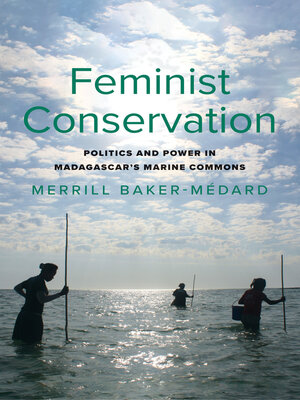Feminist Conservation
ebook ∣ Politics and Power in Madagascar's Marine Commons · Yale Agrarian Studies Series
By Merrill Baker-Medard

Sign up to save your library
With an OverDrive account, you can save your favorite libraries for at-a-glance information about availability. Find out more about OverDrive accounts.
Find this title in Libby, the library reading app by OverDrive.



Search for a digital library with this title
Title found at these libraries:
| Library Name | Distance |
|---|---|
| Loading... |
How access to and control over marine resources in Madagascar are negotiated, and the inextricable link between equity and sustainability
As marine conservation becomes an increasingly urgent issue around the world, there is an equally critical need to understand the ways different conservation interventions attend to or exacerbate social inequality. This book explores the origins of a conservation agenda in Madagascar and the consequences of its neglect of gender.
Drawing on interviews, ecological and social surveys, archival research, and several years of living with fishers in Madagascar, Merrill Baker-Médard examines how access to and control over marine resources are negotiated from fishing villages to the conference rooms of international meetings. Her intersectional approach bridges conservation science, gender studies, and human geography to advance the idea that equity and sustainability are inextricably linked and that practices of reciprocity, accountability, and care are foundational to their achievement.
As marine conservation becomes an increasingly urgent issue around the world, there is an equally critical need to understand the ways different conservation interventions attend to or exacerbate social inequality. This book explores the origins of a conservation agenda in Madagascar and the consequences of its neglect of gender.
Drawing on interviews, ecological and social surveys, archival research, and several years of living with fishers in Madagascar, Merrill Baker-Médard examines how access to and control over marine resources are negotiated from fishing villages to the conference rooms of international meetings. Her intersectional approach bridges conservation science, gender studies, and human geography to advance the idea that equity and sustainability are inextricably linked and that practices of reciprocity, accountability, and care are foundational to their achievement.







